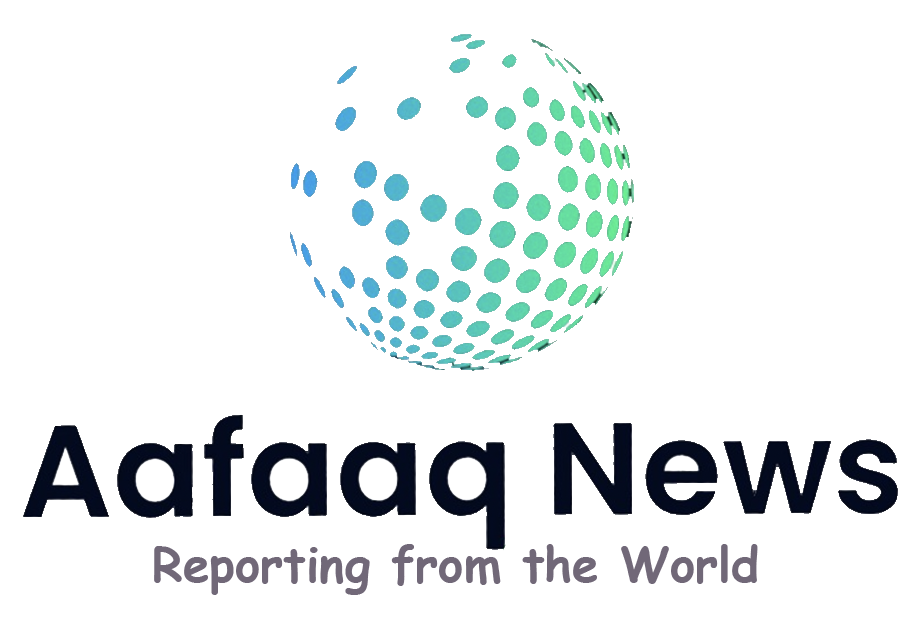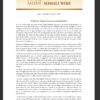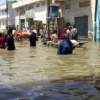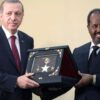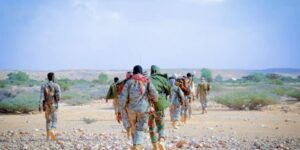The head of the African Union Mission in Somalia has called for international support for Somali government forces who are battling the al-Shabab militant group on multiple fronts in the country.
Mohamed El-Amine Souef says the Somali army needs not just training but weapons, equipment and skills for the officers, and lifting the arms embargo so that the country can buy weapons.
In an interview with VOA Somali,Souef said Somalia has a “young force” and there is a responsibility on the international community to support not only force generation but also weapons and ammunition, and skills.
“You saw what happened in Israel, the issue between Hamas and Israel, immediately their partners, including the United States, they immediately took [a] decision to support Israel in terms of weapons and ammunition,” he said, citing the Israel-Hamas war, which triggered the U.S. sending emergency military aid within a matter of days.
“I think the Somalis are now struggling with embargo … that embargo should be lifted.”
Souef said some of the countries that sent troops to Somalia have agreed they will donate equipment, vehicles, and guns to the Somali army when they withdraw by December next year.
He confirmed that the Africa Union Peace and Security Council has approved Somalia’s request for a three-month pause of the withdrawal of 3,000 peacekeepers. “It has been delayed officially for three months.”
Asked if the Somali government is underestimating the magnitude of the task in taking over responsibilities from the AU and fighting al-Shabab, Souef said there is a “political will” in Somalia to take over security responsibilities from the African Union Transition Mission in Somalia.
“The most important is the political will,” he said. “The political will is there, and then the Somalis don’t want to be assisted forever. They want to take their ownership. They are working very hard.”
On Wednesday, a senior Somali government official welcomed the pause of the troops drawdown but expressed confidence the government will have enough troops in the coming months to resume responsibilities.
Kamal Dahir Hassan Gutale, national security adviser to Prime Minister Hamza Abdi Barre, said the government has trained 9,700 soldiers since taking office in May 2022, and had an additional 3,000 troops trained in Eritrea.
He said there are more troops still being trained abroad.
Gutale said the government is confident Somali troops will assume responsibility after the 90-day pause, and after completion of the next drawdown scheduled for June 2024, when 5,000 AU troops will be leaving.
“It is something we are taking very seriously, and now it is our responsibility to fill the gap,” he said.
Gutale said Somali forces have been shouldering double tasks — fighting al-Shabab and capturing large territories, while also training new forces.
“SNA [Somali National Army] has liberated large territories from Mogadishu all the way to Harardhere, which is a tremendous and uphill task,” he said.
Souef warned against underestimating al-Shabab, which he said conducts extensive training, and attempts to “dominate the terrain.”
He said the group is getting weapons and are “very well-equipped.”
“No, we are not underestimating al-Shabab, and nobody can underestimate al-Shabab,” he said. “I spoke with you earlier about what happened two days ago — Hamas is just such an armed group, movement, and you saw the damage they caused in Israel, while Israel is one of the most well-organized countries, well-equipped militaries and in terms of intelligence.”
Souef said the AU troops are waiting for helicopters to arrive from Burundi, subject to clearance from the Somali government, to add to the two helicopters they already received from Uganda.
“The helicopters will be here maybe within two or three weeks,” he said. “Once we have the helicopters, we will have the possibility to generate QRF [Quick Reaction Forces] and then we will be more mobile, agile and follow the SNA wherever they are fighting and to support them
